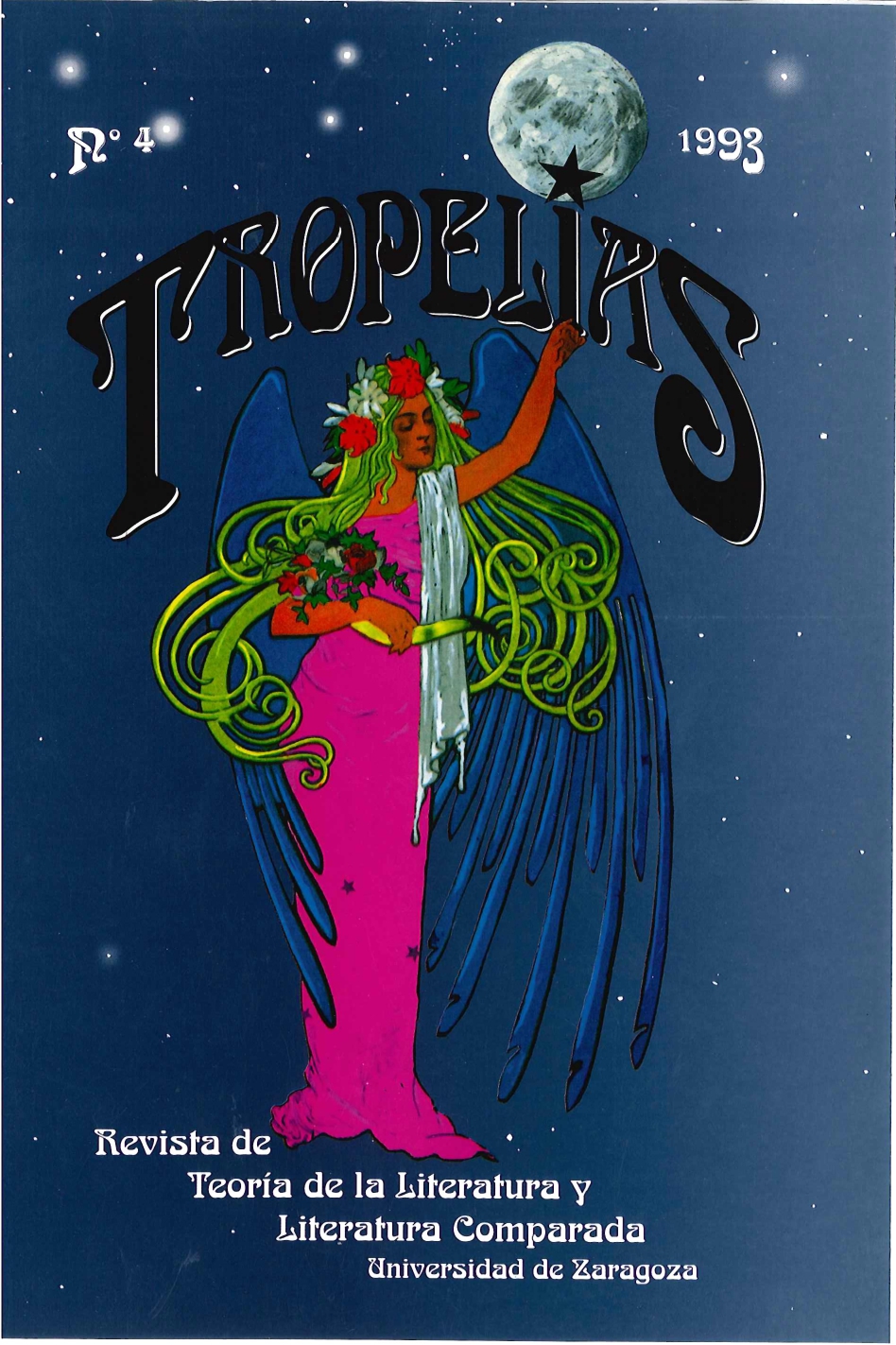The study of European Literatura
DOI:
https://doi.org/10.26754/ojs_tropelias/tropelias.199345540Keywords:
european literatureAbstract
Although it is agreed that the study of national literatures is based on specific differences between them (works written in the same language and within the same tradition, and inevitably expressing a particular linguistic identity), we still can and must recognize the existence of an European literature as a homogeneous field of research characterized by functional unity.
The term "European literature" is to be preferred to "Western literature": the former testifies to the historicity of works produced within this tradition, while the latter may assume undesirable political overtones.
A literary tradition works across linguistic borders. Its modelling power can be recognized in a macro-text in which influences both dircet and indirect are at work.
The European tradition has its source in the literature of classical antiquity, an inheritance handed down not only lo the Middle Ages, but also to the succeeding centuries, down to our times. Each new epoch contributes to the tradition, producing works which present themselves as models for the future while at the same time they continue the tradition.
The study of European literature requires both a broad general approach and awareness of the specificity of individual works. The competence required is not ecumenical but multispecialistic and must avoid the pitfalls of two different approaches which have impoverished most studies in the field, the formalistic and the evaluative approaches.
The former has overpriviledged the structural dimension of literary works. It should not however elude what may be considered the essence of a literary work of art, namely the whole gamut of human experienee and its embodiment in images, values, meanings. Literary tradition is not only made up of forms and codes, but also of a vast repository of themes which is constantly available and is drawn upon more or less explicitly and directly.
On the other hand, the evaluative approach tends either to exalt the origins, thus denigrating modernity and neglecting the historicity of transmission, or to vindicate rupture with the past, as if this were not another form of tradition.
Modern literature lives in an ambivalent relation to past and future and the former present as authority, the latter as project.
Downloads
Downloads
Published
How to Cite
Issue
Section
License
Copyright (c) 2021 Guido Paduano

This work is licensed under a Creative Commons Attribution 4.0 International License.
Los artículos enviados a la revista Tropelías deben ser originales e inéditos, no publicados previamente en cualquier soporte. Únicamente se aceptará material publicado total o parcialmente con anterioridad, o que esté en proceso de evaluación en otra revista, si se hace constar la causa de tal duplicación y se facilita la fuente donde ha aparecido dicho artículo.
Las imágenes que se incluyan en los artículos estarán libres de derechos de reproducción y, en caso contrario, los autores deberán presentar los permisos para su publicación y asumir los pagos derivados de ello.
Los artículos y reseñas publicados en la revista Tropelías pueden ser incluidos en repositorios temáticos o institucionales desde el momento de su publicación, sin modificación alguna e indicando claramente su procedencia.


